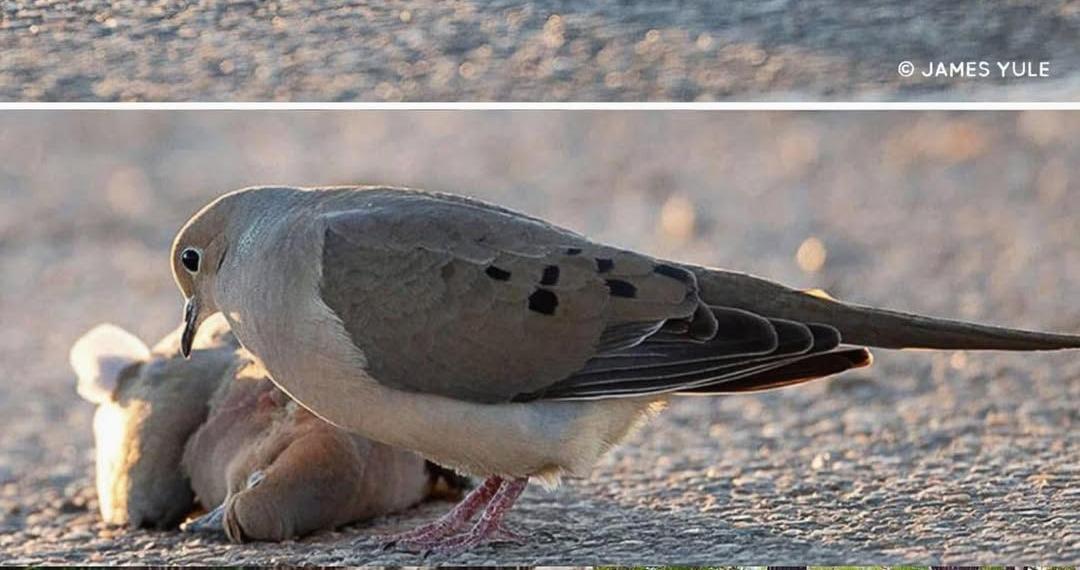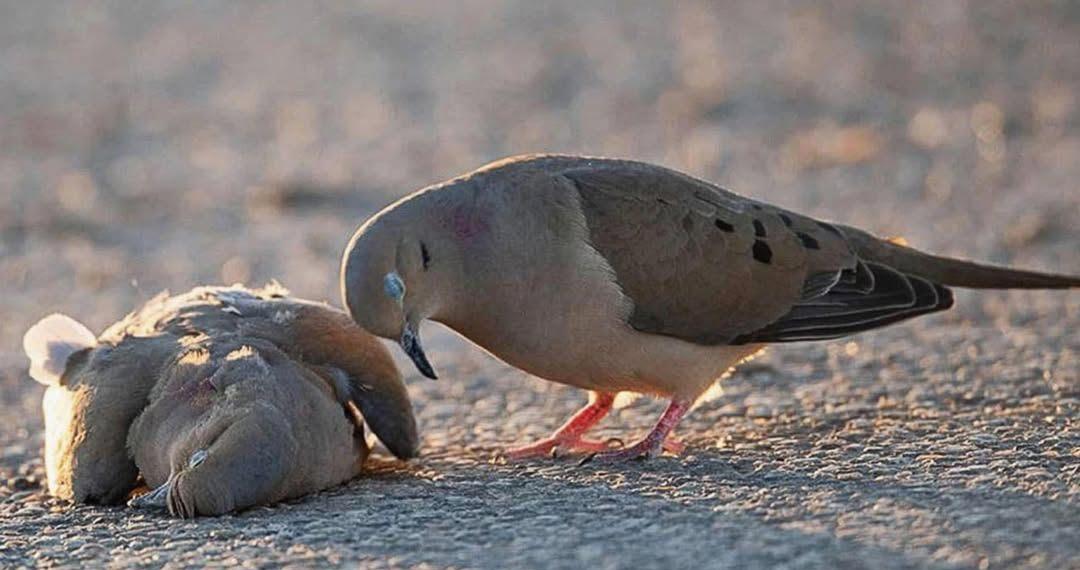When a Dove Refuses to Say Goodbye

👉🏻❤️ Related Videos:
On the quiet road bathed in soft golden light, a lone dove stood trembling beside its fallen mate. Its feathers quivered with a grief too heavy for such a small body to carry. Slowly, it leaned down, touching its beak against the still form on the ground, nudging gently as though whispering, “Wake up… please, wake up. We were meant to fly together, to chase the horizon, to share the sky forever.”
 But silence pressed back with unbearable weight. The partner who had once answered every call, who had once flown wing to wing through countless skies, would never respond again.
But silence pressed back with unbearable weight. The partner who had once answered every call, who had once flown wing to wing through countless skies, would never respond again.
Doves are known for their loyalty — not just symbols in human poetry, but living testaments of devotion. They choose one soul and remain bound for life. Together, they weave fragile nests from twigs and hope, take turns warming their eggs, and feed their chicks side by side. Season after season, through storm and sunshine, they are not two birds — they are one flight, two wings of the same being. And when one is lost, the other does not simply move on. Instead, it lingers, as if love itself refuses to accept the empty space where its mate once stood.
 In that haunting moment, the little dove was not just standing over death — it was standing over the breaking of its own heart. Every nudge of its beak was a prayer, every tilt of its head a desperate denial, every glance toward the horizon a cry against the cruelty of parting. It did not leave. It could not leave. For when love grows deep enough, it roots itself beyond life itself — and even when one heartbeat stops, the other keeps beating for both.
In that haunting moment, the little dove was not just standing over death — it was standing over the breaking of its own heart. Every nudge of its beak was a prayer, every tilt of its head a desperate denial, every glance toward the horizon a cry against the cruelty of parting. It did not leave. It could not leave. For when love grows deep enough, it roots itself beyond life itself — and even when one heartbeat stops, the other keeps beating for both.
The scene is both unbearably tragic and achingly beautiful: the raw purity of devotion that asks for nothing in return, that expects no reward, yet gives everything without hesitation. It shows us that love, in its truest form, does not belong only to human vows or words — it is written into the very fabric of life itself. It lives in silence, in presence, in the steadfast loyalty of waiting, simply to say, “I am here. I will stay. Until the very end.”
 The little dove may never soar alongside its mate again, may never feel the rhythm of wings beating in perfect harmony beside its own. And yet, in its vigil — in its refusal to abandon the one it loved — it leaves behind a lesson deeper than any human poem.
The little dove may never soar alongside its mate again, may never feel the rhythm of wings beating in perfect harmony beside its own. And yet, in its vigil — in its refusal to abandon the one it loved — it leaves behind a lesson deeper than any human poem.
It tells us that true love does not vanish when life ends. It lingers in the quiet spaces of the heart. It aches, it remembers, it holds on with a strength that nothing can break. In the tender shadow of loss, it whispers that love — pure, simple, eternal — is the most powerful force of all.
And perhaps that is the greatest truth of this fragile world: that even when the sky grows empty, love remains. It outlasts sorrow. It outlasts time. It outlives the sky itself.











